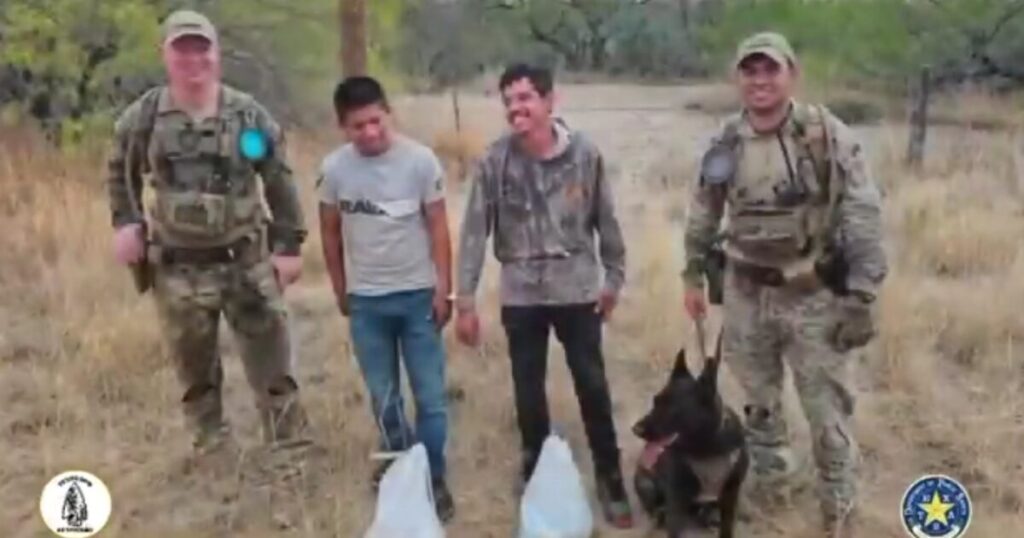In December 2024, the Texas Department of Public Safety (DPS) K-9 Unit engaged in an operation to apprehend two illegal aliens who had entered the United States through Maverick County, Texas. The pursuit highlighted an ongoing crisis at the southern border, which many attribute to the policies of the Biden administration. The two illegal immigrants, who hailed from Mexico, attempted to evade capture by traversing miles of brush and trespassing on private ranches. Utilizing specially trained K-9s, named Shark and Bona, the DPS tracked the two individuals over 16 miles through rugged terrain. After a relentless pursuit, the illegal aliens were located and apprehended, illustrating the commitment of Texas law enforcement to securing the border and ensuring public safety.
The high-profile operation underscores the diligent efforts of the Texas DPS, which has faced increasing challenges due to what many perceive as federal neglect in border management. The Biden administration’s handling of immigration and border security has drawn criticism from various quarters, prompting state agencies like the Texas DPS to take more proactive measures. The K-9 unit’s successful tracking demonstrates not only the effectiveness of trained dogs in law enforcement but also the resilience of Texas in managing a chronic and escalating issue involving illegal immigration.
In another incident, the DPS reported a high-speed chase involving a human smuggler who was transporting 14 illegal immigrants in a Ford F-350 truck. During the pursuit, the driver displayed reckless behavior, endangering both the passengers and others on the road. The smuggler, identified as Alberto Hernandez from San Antonio, ultimately abandoned the vehicle after driving off-road. With the aid of the U.S. Border Patrol, law enforcement successfully apprehended Hernandez, illustrating the risks associated with human smuggling operations and the need for continued vigilance in combating such activities.
Since the launch of Operation Lone Star in 2021 under Governor Greg Abbott, Texas has taken significant steps to deter illegal immigration and combat drug-related threats, including fentanyl. This operation has mobilized the Texas DPS and the National Guard to detect illegal crossings, make arrests, and prevent drug trafficking. The initiative has strengthened border security and aimed to dismantle criminal networks involved in human trafficking and drug smuggling, showcasing Texas’s commitment to maintaining safety and security in light of federal inaction.
Furthermore, the legal framework surrounding these operations is foundationally supported by the U.S. Constitution, which assigns the federal government the responsibility to protect states from invasions and secure their borders. Article IV, Section 4 outlines this obligation, yet many argue that the current administration has failed to uphold this constitutional duty. Critics of the Biden administration cite rising crime rates and increasing instances of drug trafficking as indicators of this negligence. This situation has compelled Texas and other border states to adopt a more independent stance in enforcing immigration laws and protecting their communities.
As the nation transitions to a new presidency in early 2025, the focus on border security is expected to shift dramatically. President Trump has made public commitments to strengthen national security measures, immediately sealing the border, and initiating deportations of illegal immigrants. This shift in leadership and policy direction is anticipated to resonate throughout Texas and beyond, especially among law enforcement agencies engaged in the ongoing fight against illegal immigration and associated crimes. The evolving landscape of immigration policy will undoubtedly shape the strategies employed by state agencies and influence the broader narrative surrounding border security in the United States.

